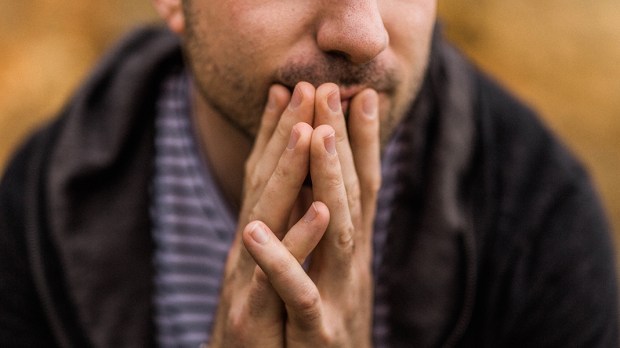Lenten Campaign 2025
This content is free of charge, as are all our articles.
Support us with a donation that is tax-deductible and enable us to continue to reach millions of readers.
Each morning, we give our toddler two options – do you want to wear this fancy ballerina dress or do you want to wear that fancy ballerina dress? (She only wears fancy ballerina dresses.) She happily makes her choice and then we go downstairs, where she is given another set of options – do you want oatmeal or do you want yogurt? Again, she happily makes her choice. We’ve found that offering her a narrow range of choices empowers her, but also defines her options in a way that works for us all.
When I imagine giving her endless options for breakfast I remember that this is the same girl I found eating ice cream out of the carton at 5:30am. There’s a delicate balance in guiding children to good choices while still allowing them the freedom to make those choices.
When I was a child, my imagination knew no limits. I was going to play basketball against cartoon characters with Michael Jordan as my teammate. I was going to drift away on an umbrella like Mary Poppins. I had architectural plans to build a self-contained artificial island ecosystem and move all of humanity into it. I was going to paint the great American masterpiece. I was going to write the great American novel. A child is supposed to dream big. We might even contend it’s one of the vital tasks of childhood to imagine the future in grandiose visions, to think about how the world can be different and better. Idealism is the beauty of childhood. No horizon is too far, no mountain too high.
These childhood dreams are precious, and woe to the parent who needlessly crushes them. We cannot remain children forever, though, and at some point we have to stop endlessly dreaming and pay the bills. If we’re very fortunate, perhaps some of our dreams come true, but we can’t have them all. I know that sounds very dour and cynical and so very adult to say, but if we don’t narrow down our options, they paralyze us. If I didn’t offer my daughter two concrete, specific choices about what to wear, she would stand in the closet for hours wrestling with indecision.
It’s a phenomenon called decision fatigue, and it follows us into adulthood. Each day we’re presented with a dizzying array of choices – what to wear, what to eat, which emails to answer, which projects to tackle, what television shows to watch – it’s overwhelming. This is why so many of us feel unmotivated and drained. Every day, we put tremendous energy into making choice after choice, and then may wonder if the other choice may have been better, and there’s no end in sight.
Decision fatigue can be so bad that author Barry Schwartz says, in his TED talk, that people regularly pass up free money. When it comes to retirement funds, he says, “For every 10 mutual funds the employer offered, rate of participation went down two percent. You offer 50 funds — 10 percent fewer employees participate than if you only offer five. Why? Because with 50 funds to choose from, it’s so … hard to decide which fund to choose, that you’ll just put it off till tomorrow …”
Psychologists offer hints for how to manage this – take a contemplative break, create a predictable routine, and set deadlines to stay focused. These lessons are definitely helpful, especially since we live in a world in which the need to make constant decisions isn’t going away anytime soon.
I want to take a slightly different look at the problem, though, because it seems to me that we need to do better than a scenario in which we merely manage stress. There’s a deeper reason we’re engaged in a large-scale, societal struggle with decision fatigue — we haven’t managed to fully grow up.
We still think we can have it all and are terrified of taking any options off the table. I want to drink that 1,000-calorie coffee drink and still look like a professional athlete. I want to stay up all night but never feel tired. I want a large loving family but still want my freedom. I want a strong spiritual life but also want to watch the football game on Sunday mornings. I want a happy marriage but don’t want to share my space. I want to go to heaven but don’t want to die. Essentially, we’re convinced we can have every choice, all the time, and as a consequence we are paralyzed with decision fatigue.
In his novel The Pale King, David Foster Wallace writes, “To experience commitment as the loss of options, a type of death, the death of childhood’s limitless possibility, of the flattery of choice without duress – this will happen, mark me. Childhood’s end.” In other words, narrowing down our options is a process that feels like leaving pieces of ourselves behind. This is why we fight against it. At the same time time, if we keep fighting we lose something precious – the ability to make an intentional choice and commit.
I think about my life and the greatest sources of happiness within it — my marriage, my children, and my vocation as a priest. Each one required a strong commitment. A marriage is a vow to be faithful to a single person for the rest of your life. That’s a drastic narrowing of options. Children have removed a whole range of options for me, such as long dinners out with friends, spontaneous movie nights, and frequent travel. Becoming a priest has placed me in a parish with an obligation to say Mass every single day. I’ve given up innumerable options, and chosen a specific, narrow path, but as a result I’ve received much more than I ever gave.
When it comes to making choices, it isn’t about what we’re giving away, how we’re limiting ourselves, or what parallel existence we might be living. The way I see it, it’s a privilege and a blessing to be able to make a commitment. It’s the chance to experience a death to the old self, putting behind the immaturity of youth so we can be set free to experience a deepening of our identity through faithfulness.
You can wear this ballet dress or that ballet dress. Either way, you get to dance.


